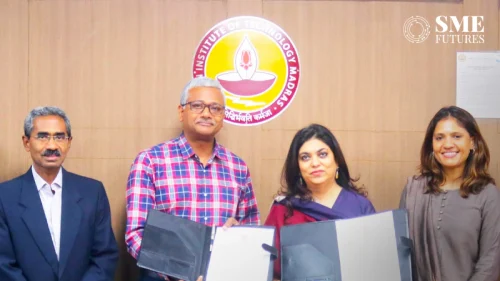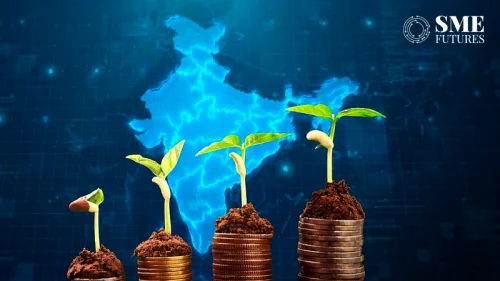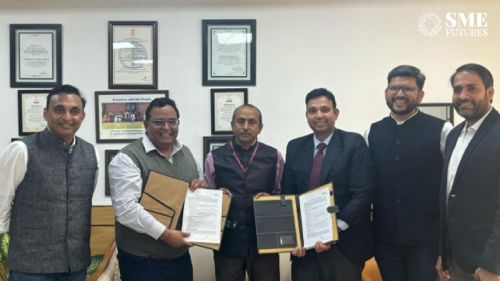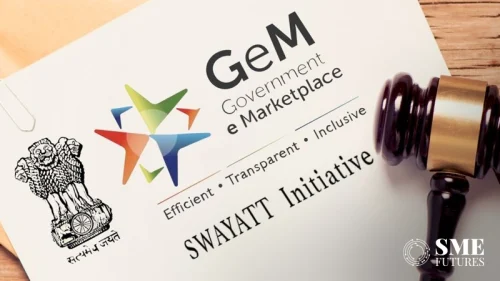Uttar Pradesh government headed by Chief Minister Yogi Adityanath has announced massive subsidies as well as exemptions for investors on setting up semiconductor units in Uttar Pradesh, under the UP Semiconductor Policy 2024.
The investors will get significant subsidies on capital, interest and land along with exemptions and relief from stamp duty, registration fees, and electricity duty in establishing semiconductor units, which are considered the backbone of electronics goods manufacturing in the state under the new policy.
The state government will also assist companies setting up semiconductor units here in skills and training, in addition to establishing a Research and Development Center along with the Center of Excellence. The much-anticipated UP’s Semiconductor Policy is dubbed as a major initiative geared towards making India the third economic power in the world.
Uttar Pradesh’s Minister of Higher Education, Yogendra Upadhyay, stated that the recently introduced Semiconductor Policy under the IT and Electronics department will play a crucial role in making the state and the country a leader in this sector.
Notably, the subsidies include 50 percent on capital as approved by the Central government and an interest subsidy of 5 per cent per annum for units investing up to Rs 200 crores through loans obtained from scheduled banks/financial institutions, with a maximum repayment period of 7 years and a maximum repayment of up to Rs 1 crore per unit per year.
Besides, units investing up to a maximum of Rs 7 crores can avail the interest subsidy. The investors will also get rebates on land rates. For example, investors purchasing land from state authorities for the first 200 acres will receive a 75 per cent subsidy on prevailing sector rates, while units or subsidiary units making additional land purchases will be allowed a 30 per cent subsidy. Furthermore, the investors will get 100 percent exemptions from stamp duty and registration fee on the purchase and lease of land.
Investors to be exempted from electricity duty for 10 years
Investors will also be totally exempted from electricity duty for 10 years. Double power grid networks will be provided for fab units in the state. The cost of one grid will be reimbursed by the state government and that of the other be borne by the investor. Additionally, for the inter-state purchase of electricity for 25 years from the project’s operational date, a 50 percent discount on wheeling charges/transmission charges will be provided.
Assistance will also be provided for skills and training
The state government will seek collaboration with educational institutions and industries to establish a skilled workforce pool for assisting in the chip design and manufacturing sector of the semiconductor industry. The government will provide incentives to motivate talents in the semiconductor sector in Uttar Pradesh. Under this initiative, a total of up to Rs 3 crores will be allocated for five years, with up to Rs 60 lakhs per year, for organising faculty training, technical workshops, awareness programs, and experts lectures.
Furthermore, under the Chief Minister Internship Scheme, every year an annual financial assistance of Rs 20,000 each will be provided for up to 500 students for five years, especially B.Tech and M.Tech graduates. To foster the development of international-level expertise within the semiconductor industry, a maximum sum of Rs 1 crore per unit will be provided as one-time assistance for a period of up to 12 months as compensation for such expertise.
Subsidy of up to Rs 10 crore to be given on R&D centres
The state government will contribute 25 per cent of the cost of setting up the R&D Center, which will be subject to certain conditions, for up to a maximum of Rs 10 crore of investment. This benefit will be available to those units that have invested a minimum of Rs 20 crore in the Research and Development Center.
Furthermore, there must be distinct amenities either within or adjacent to the industrial premises. Registration with either the Department of Scientific and Industrial Research (DSIR), the Council of Scientific and Industrial Research (CSIR), or STPI (Software Technology Parks of India) is mandatory. The subsidy will be disbursed in stages, with 50% upon project approval, an additional 25% after 3 years from approval, and the remaining 25% upon achieving predetermined outcomes within 5 years.
Government will spend Rs 10 crore on Center of Excellence
Under the policy, there is a plan to establish a world-class Center of Excellence Center (COE) as a foundational framework to promote research and innovation in the semiconductor sector. The centre will be established in collaboration with reputed educational institutions, industry associations, industry, or any other government/private entity. The state government will bear 50 per cent of the total project cost (up to a maximum of Rs 10 crore) for the Center of Excellence. However, it’s important to note that the subsidy benefits will be applicable to either the Research and Development Center or the Excellence Center, and not both.
Additional benefits include:
Reimbursement will be made (lump sum) at the rate of 75 per cent of the fees and expenses incurred for patent registration, subject to a maximum limit of Rs 10 lakh for obtaining a domestic patent and a maximum of Rs 20 lakh for obtaining an international patent. A provision of 10 per cent of the cost of development of housing/hostel and related collective facility for workers within a radius of 10 km of the premises of the unit or Rs 10 crore, whichever is less, will be provided in 7 equal annual installments.










